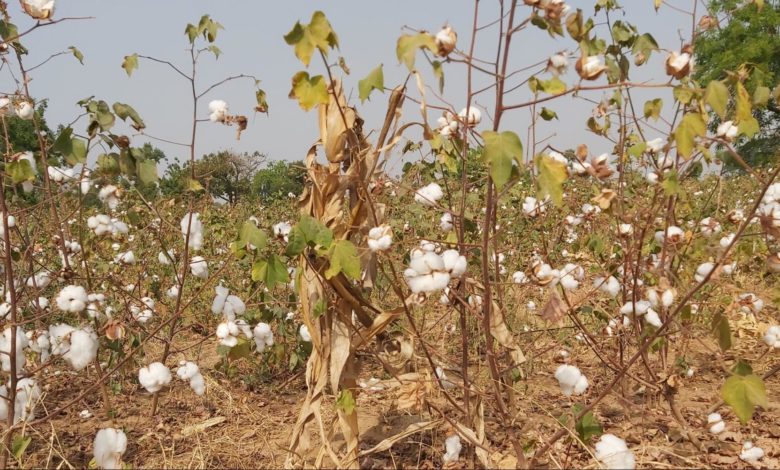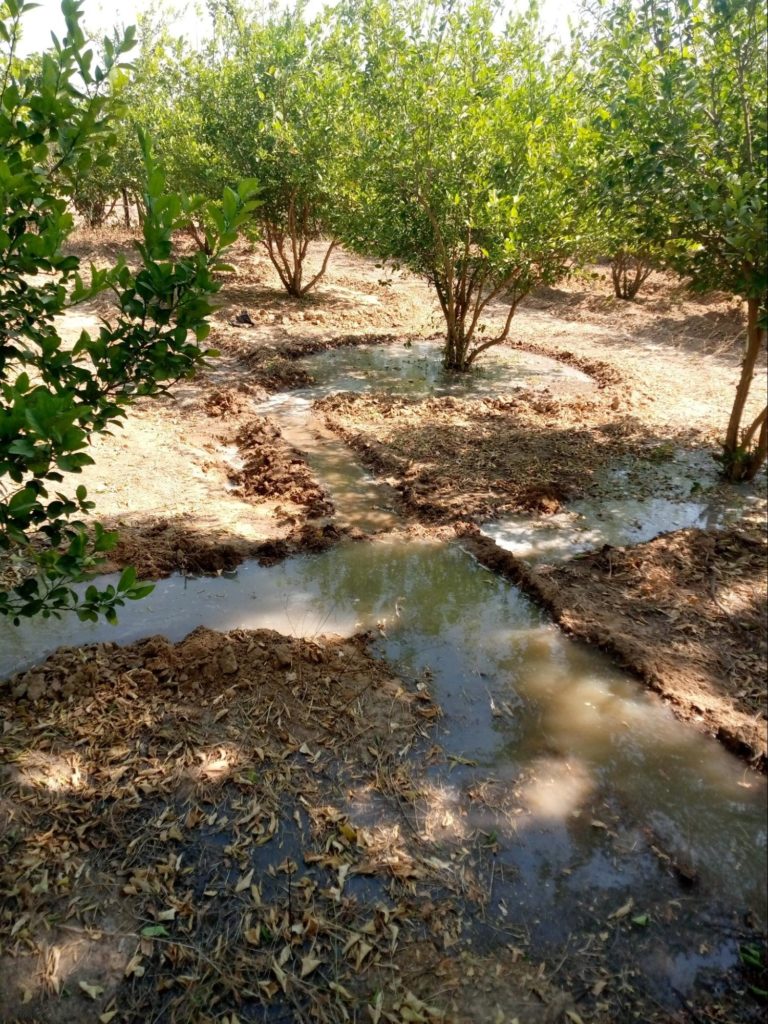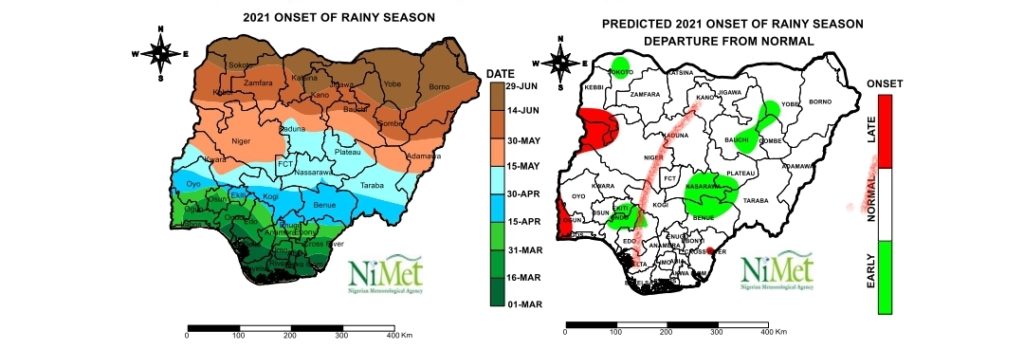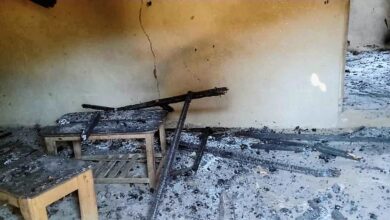Farmers In Northern Nigeria Threatened By Erratic Rainfall, Insecurity
Farmers across different states in Northwest Nigeria are experiencing unfavourable odds due to unpredictable rainfall and insecurity in the region.

Farmers in Northern Nigeria face threats from erratic rainfall and insecurity, which negatively impacts crop production, food security, and livelihood in the region.
HumAngle understands that inadequate rainfall in the previous year hampered the development of watermelon and cotton production in Kukawa town of Kanam Local Government Area of Plateau State, North Central Nigeria.
Bara’u Adam, a local, conversant with farming activities in Kukawa town, told HumAngle that inadequate rainfall had a detrimental impact on crops’ growth.
He explained that farmers’ watermelons were smaller in size, and a similar situation was experienced in cotton harvests.
The shortage of water was not the only challenge to farmers as flooding in some areas, particularly along the River Niger, led to the destruction of farmlands and crops.
In early February, Nigeria’s weather forecasting agency, Nigerian Meteorological Agency (NiMet) 2021 Seasonal Climate Prediction, indicated that below-normal rainfall was expected in the northwestern part of the country.
“The earliest onset date is likely to occur on March 1, 2021, along the coastal line of the country while the latest date is anticipated to be around June 29, 2021, in the northernmost parts of the country,” the agency reported.
The weather advisory noted that the cessation of the rainfall would be around Oct. 9 in Katsina and northern part of Sokoto while the latest cessation date would be by Dec. 25 over the Niger-Delta region.
NiMet forecasts the rainy season’s length to span between 110 days in the extreme north and over 300 days in the south, while most places would likely have their usual length of the season.
HumAngle understands that dry spells and rise in temperature in parts of the country are expected to make farming more difficult in the affected areas. Experts say investment in climate-resilience and adaptation measures for farmers was vital for reducing risk and protecting food security.
For instance, Ngetra Integrated Farms in Dala Malari area of Jere Local Government Area of Borno State utilises an irrigation pond for about four or five months depending on the evaporation rate.
The pond which stores rainwater also serves as a water point for pastoralists.
Ali Busuguma, the Executive Director of the farm, told HumAngle that whenever the lake dried up the farm switched to a borehole for the remaining three months before the rainy season.

Busuguma, who doubles as the Regional Director of African Climate Change Research Centre, said rainfall was scanty and lasted for a few months. “Our concern though is the unpredictability of the rainy season,” he said.
Ngetra farms also utilise organic mulches for preserving soil moisture.
Juwairiya El Yakub, an agriculturalist, said in an interview with HumAngle that farmers could adopt strategies for preserving and conserving water in times of erratic rainfall, by saving water in ponds, tanks or dams.
NiMet shared similar advice on conserving soil moisture and ensuring breaks were made between rows and beds before the cropping season to reduce soil erosion.
Farmers could also adapt by planting more drought-resistant varieties of crops like short-duration crops and early-maturing varieties, Juwairiya said.
She added that one of the most important things farmers should look at was planning and planting at the right time.
HumAngle learned that the unpredictability of the rainfall in recent years impacted the local weather forecast system used by farmers to guide the cultivation of land and plant crops.
Juwairiya runs a digital start-up that provides agro extension services. She said the government could aid farmers through enlightenment campaigns on climate change and the importance of using weather forecast information.
Juwairiya observed that some start-ups and companies offered weather information as a service to which farmers could subscribe to access weather information to influence farming activities.
In the case of Ngetra farm in Borno, unpredictable weather conditions are not the only concern; the farm is also affected by insecurity ravaging the state, the epicentre of decade-long Boko Haram insurgency.
The security situation has impacted the working hours available for activities on the farm and the management’s ability to diversify or maintain its investment in fishery and cattle fattening.
Similarly, violence in the northwestern part of the country has displaced several people and hampered agricultural activities.
By March 2020, more than 210,000 people were reported to have been internally displaced while more than 35,000 refugees, mostly farmers, crossed into Maradi in the Niger Republic during the period.
As farmers prepare to cultivate their farms in the northeast and northwest regions for the new farming season, they face deadly threats from unexploded bombs and improvised explosive devices.
HumAngle in July 2020 reported a police advisory on the threat of unexploded bombs in Northeast, particularly on farmers in Yobe State.
In July of the same year, at least seven persons were killed by a bomb explosion on a farm in Malumfashi Local Government Area of Katsina State, Northwest Nigeria, where armed gangs’ attacks have become a major security concern.
Support Our Journalism
There are millions of ordinary people affected by conflict in Africa whose stories are missing in the mainstream media. HumAngle is determined to tell those challenging and under-reported stories, hoping that the people impacted by these conflicts will find the safety and security they deserve.
To ensure that we continue to provide public service coverage, we have a small favour to ask you. We want you to be part of our journalistic endeavour by contributing a token to us.
Your donation will further promote a robust, free, and independent media.
Donate Here





